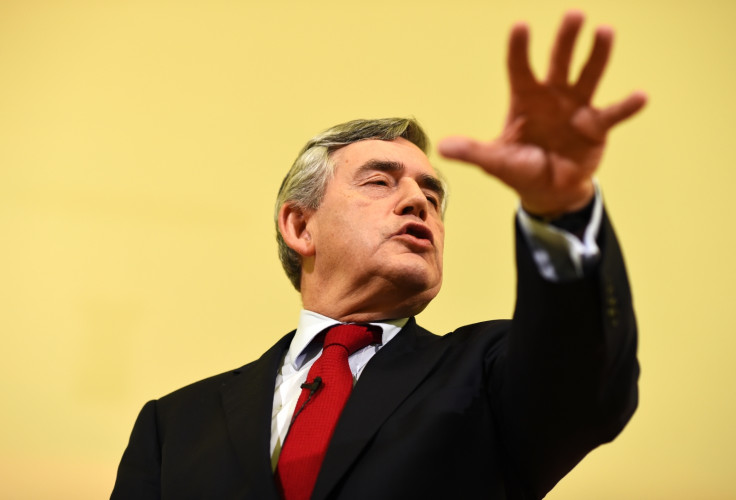Scottish Devolution: Gordon Brown Leading Debate After Warning of 'Nation Collapse'

Former Prime Minister Gordon Brown is to lead the next debate on Scottish devolution, following from a tussle with Leader of the House William Hague over "English votes for English laws"- dubbed the West Lothian Question.
Brown has said this week that "nations can collapse by accident" and by excluding Scottish MPs from voting on laws in Westminster could damage the "stability and harmony of the British constitution".
Hague responded and said "the UK is in greater danger if the legitimate arguments and expectations of English decision making, on decisions effecting only England, are not responded to."
All political parties promised Scots that it would grant enhanced power over taxation and spending in exchange for voters opting out of independence.
On 18 September, over 80% of Scots turned out to vote and, in the end, 55% decided Scotland should stay part of the 307-union with England.
On 19 September, UK Prime Minister announced plans to possibly end 59 Scottish MPs to vote on England-only laws.
While Cameron pledged to push on with granting Scotland more powers immediately, politicians from his own Conservative party, as well as others, have voiced concerns over the impact the unprecedented control that the country would have on the rest of the UK.
Many have said that if Scottish MPs are granted that amount of power on spending and taxes, with no English and Welsh MP having a say, then Scots should not expect their politicians to make a decision on key issues such as healthcare in England.
This has since sparked concern from Scots and some other politicians over how Westminster will either water down or renege on their pledges.
"It was an unconditional vow that became conditional as the hangover set in," said Scottish National Party MP Angus MacNeil.
Meanwhile, 120,000 people signed a petition urging Westminster to keep promises on devolution.
However, Scottish Secretary Alistair Carmichael said "there will be no delay while the rest of the UK catches up with Scotland."
© Copyright IBTimes 2024. All rights reserved.






